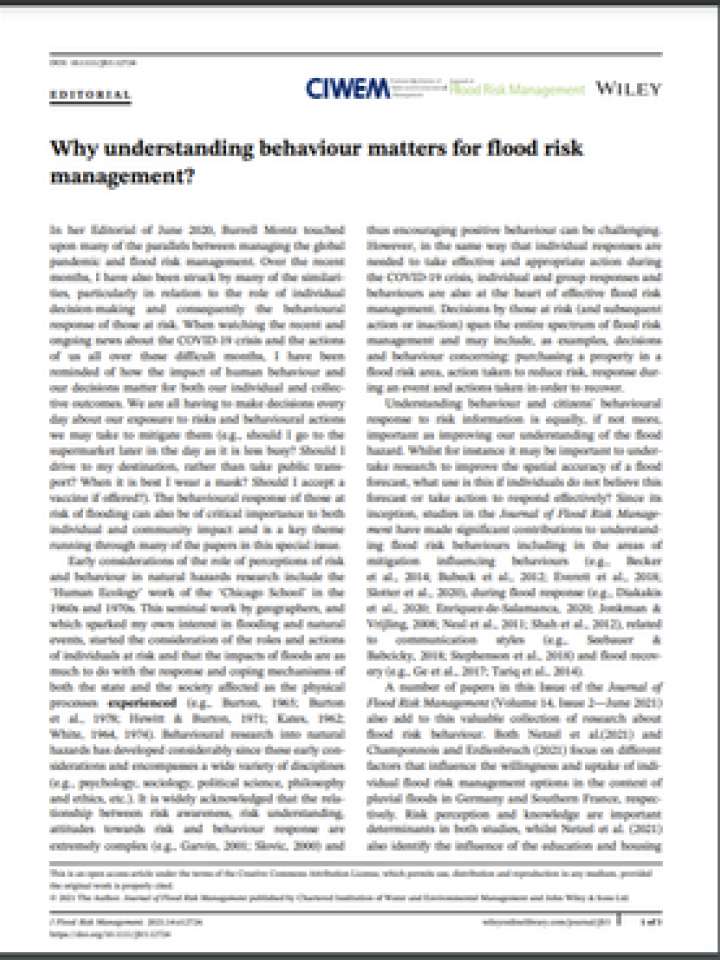Why understanding behaviour matters for flood risk management?
This editorial discusses the importance of understanding human behaviour in flood managament. The behavioural response of those at risk of flooding can be of critical importance to both individual and community impact. Behavioural research into natural hazards has developed considerably and encompasses a wide variety of disciplines (e.g., psychology, sociology, political science, philosophy and ethics, etc.). It is widely acknowledged that the relationship between risk awareness, risk understanding, attitudes towards risk and behaviour response are extremely complex and thus encouraging positive behaviour can be challenging. However, in the same way that individual responses are needed to take effective and appropriate action during the COVID-19 crisis, individual and group responses and behaviours are also at the heart of effective flood risk management.
The importance of behavioural actions is only going to intensify in the future. Disaster management systems are increasingly asking individuals to participate in a much greater way to managing their own risk. This, in turn, means governments and disaster managers are potentially asking them to make more complex individual decisions about their risks and what their behaviours should be, further raising the significance of research into approaches to encourage effective flood risk management behaviours.
Explore further
